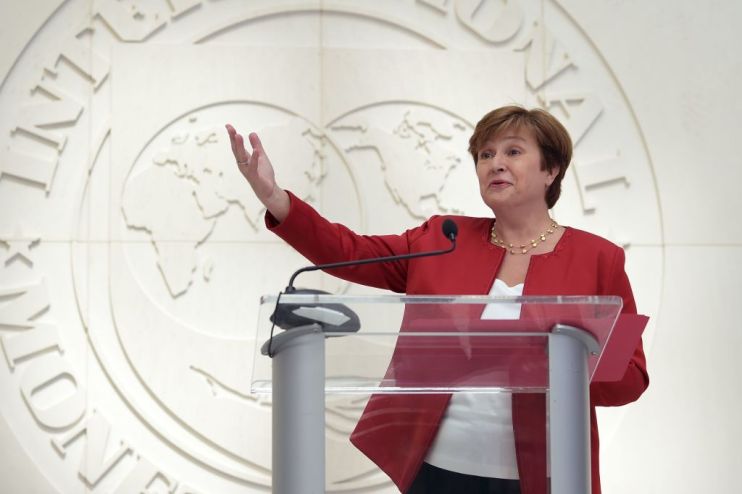New IMF chief Kristalina Georgieva says trade wars to cost global economy $700bn

The new boss of the International Monetary Fund (IMF) has used her first speech in the role to warn that trade wars, Brexit, and political tensions will push global growth to its lowest rate in a decade.
Read more: World Bank’s Kristalina Georgieva unopposed for IMF top job
Kristalina Georgieva, the 66-year old Bulgarian economist, said governments and central banks must “where appropriate” increase spending and keep interest rates low to boost growth.
The former World Bank chief executive was giving her first speech as managing director in Washington after taking over from former French finance minister Christine Lagarde, who will become the next president of the European Central Bank (ECB).
Georgieva used her platform to reveal that the IMF, the international lender of last resort, will next week once again downgrade its global growth predictions for 2019 and 2020.
The Bulgarian pointed the finger squarely at trade disputes. “Everyone loses in a trade war. For the global economy, the cumulative effect of trade conflicts could mean a loss of around $700bn (£573bn) by 2020, or about 0.8 per cent of GDP.”
Yet she also blamed “Brexit and geopolitical tensions” and warned: “The fractures are spreading.”
“Currencies are once again in the spotlight. Because of our interconnected economies, many more countries will soon feel the impact.”
To tackle these problems, countries should “use monetary policy wisely” and “deploy fiscal tools,” Georgieva said.
“In places such as Germany, the Netherlands, and South Korea, an increase in spending… will help boost demand and growth potential.”
Although she said countries should “where appropriate keep interest rates low,” the new IMF boss warned of “negative side effects”.
“If a major downturn occurs, corporate debt at risk of default would rise to $19 trillion, or nearly 40 per cent of the total debt in eight major economies. This is above the levels seen during the financial crisis.”
Read more: European policymakers eye up fiscal policy response to slowdown
“Low interest rates are also prompting investors to search for higher yields in emerging markets. This leaves many smaller economies exposed to a sudden reversal of capital flows.”
(Image credit: Getty)